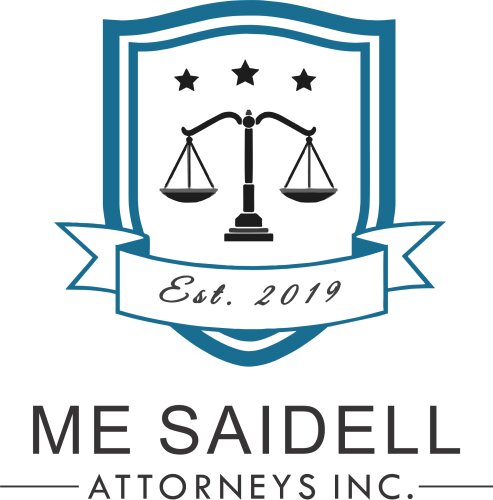Best Acquisition / Leveraged Finance Lawyers in Johannesburg
Share your needs with us, get contacted by law firms.
Free. Takes 2 min.
List of the best lawyers in Johannesburg, South Africa
About Acquisition / Leveraged Finance Law in Johannesburg, South Africa
Acquisition and leveraged finance law in Johannesburg, South Africa, concerns the legal and regulatory framework governing the funding of company acquisitions, especially where a portion of the purchase price is financed through debt. Typically, leveraged finance involves raising loan capital to purchase businesses, where the acquired company’s assets often serve as security for the borrowed funds. Johannesburg, as the financial hub of South Africa and host to the Johannesburg Stock Exchange (JSE), is a central location for acquisition and leveraged finance transactions, involving both local and international parties. This field covers everything from loan agreements, security arrangements, regulatory compliance, restructuring, and tax matters as they pertain to acquiring businesses.
Why You May Need a Lawyer
Navigating acquisition and leveraged finance transactions can be complex, with significant legal and financial risks. Common situations requiring legal assistance include:
- Structuring the acquisition or financing arrangements to align with South African law
- Negotiating loan agreements, syndication documents, and security packages
- Ensuring compliance with competition (antitrust), exchange control, and financial regulatory requirements
- Advising on tax implications and structuring to maximize efficiency and minimize risks
- Handling due diligence investigations and disclosure obligations
- Managing cross-border elements and dealing with foreign lenders or borrowers
- Addressing risks of insolvency or restructuring distressed loans
- Advising on shareholder and corporate governance issues in relation to the acquisition
- Dealing with legal disputes arising from breaches of finance documents
Due to the high stakes and the interaction of multiple laws and regulations, engaging a qualified lawyer is essential to safeguard your interests.
Local Laws Overview
Several key aspects of South African law are particularly relevant in acquisition and leveraged finance transactions organised in Johannesburg:
- Companies Act: Governs the powers of companies to borrow and provide security, sets out fiduciary duties of directors, and addresses financial assistance rules for the acquisition of shares.
- Financial Markets Act: Regulates the registration and operation of financial markets and institutions, impacting syndicated loans and capital market instruments.
- Competition Act: Requires premerger notification and approval for certain transactions, especially if large companies or market participants are involved.
- Exchange Control Regulations: Limit and regulate the flow of funds in and out of South Africa, including foreign currency borrowings and the repatriation of investments or repayments.
- Insolvency Law: Impacts the enforceability of security interests, especially in cross-border transactions and in cases of debtor distress.
- Taxation: South Africa enforces rules on interest deductibility, withholding taxes, and transfer pricing which are important in structuring finance arrangements.
- Security Law: Mortgages, cessions, and notarial bonds are commonly used to secure lending. Proper registration is critical for enforceability.
Professionals must keep abreast of regular legislative updates and South African Reserve Bank directives that may occasionally affect acquisition finance transactions.
Frequently Asked Questions
What is leveraged finance in the context of South African acquisitions?
Leveraged finance refers to the use of borrowed funds, often secured by the target company's assets, to finance a significant portion of the acquisition price. It is commonly used in management buyouts and private equity deals.
What are the main legal risks in acquisition finance transactions?
Risks include unenforceable security, regulatory breaches (competition or exchange control), potential fraud, disputes over warranties, or the risk of borrower insolvency. Legal due diligence and accurate structuring are essential to mitigate these risks.
How does South African exchange control affect leveraged buyouts?
Exchange control regulations, managed by the South African Reserve Bank, restrict the movement of capital across borders. Approval may be needed for foreign funding or repatriation of profits, which can impact transaction timelines and structuring.
Are there specific requirements for companies providing financial assistance for acquisitions?
Yes. The Companies Act restricts subsidiaries or companies from providing direct or indirect financial assistance for acquiring their own shares unless certain requirements and shareholder approvals are met.
What are typical forms of security in South African acquisition finance?
Common forms include mortgage bonds over immovable property, cessions of claims and shares, notarial bonds over movable assets, and pledges over financial instruments.
Can foreign lenders participate in South African acquisition finance deals?
Yes, but foreign lenders face regulatory and exchange control requirements, including approvals for lending and repatriating funds. Legal advice is essential to navigate these restrictions.
What role does the Competition Commission play in acquisitions?
The Competition Commission reviews and approves certain mergers or acquisitions to ensure they do not result in anti-competitive market conditions. Large transactions must be notified and may not proceed until clearance is obtained.
How is due diligence conducted in acquisition finance?
Due diligence typically includes review of legal, financial, tax, operational, and regulatory aspects of the transaction to identify risks. Lawyers examine contracts, litigation exposure, tax compliance, and confirm ownership of assets.
What happens if the borrower defaults on a leveraged finance facility?
If a borrower defaults, the lender may enforce security, commence legal proceedings, or initiate insolvency proceedings. The process and priority of claims depend on how security interests were structured and perfected.
How important are warranties and indemnities in acquisition agreements?
They are crucial for protecting buyers and lenders against undisclosed liabilities or risks. Negotiating robust warranty and indemnity provisions is a key part of any acquisition transaction.
Additional Resources
For more information or support, the following organizations and bodies may be helpful:
- South African Reserve Bank (for exchange control and funding approvals)
- Companies and Intellectual Property Commission (CIPC) - for company registration and compliance information
- Competition Commission of South Africa - for merger notification and antitrust considerations
- Johannesburg Stock Exchange (JSE) - for regulations affecting listed company acquisitions
- South African Institute of Chartered Accountants (SAICA) - for financial due diligence standards
- South African Institute of Taxation (SAIT) - for tax guidance on structuring finance transactions
Next Steps
If you are considering an acquisition or require leveraged finance support in Johannesburg, it is essential to:
- Consult with an attorney who specializes in acquisition finance and understands local laws
- Prepare clear documentation of the proposed transaction, including business structures and funding sources
- Arrange for a comprehensive legal and financial due diligence review
- Seek preliminary tax and regulatory advice at the earliest stages
- Engage with local regulators as required before finalising any agreements
- Ensure that all loan and security documents are carefully drafted and properly executed
Professional advice from a reputable law firm can help you navigate the complexities of South African acquisition and leveraged finance, ensuring that your transaction is legally sound and commercially effective.
Lawzana helps you find the best lawyers and law firms in Johannesburg through a curated and pre-screened list of qualified legal professionals. Our platform offers rankings and detailed profiles of attorneys and law firms, allowing you to compare based on practice areas, including Acquisition / Leveraged Finance, experience, and client feedback.
Each profile includes a description of the firm's areas of practice, client reviews, team members and partners, year of establishment, spoken languages, office locations, contact information, social media presence, and any published articles or resources. Most firms on our platform speak English and are experienced in both local and international legal matters.
Get a quote from top-rated law firms in Johannesburg, South Africa — quickly, securely, and without unnecessary hassle.
Disclaimer:
The information provided on this page is for general informational purposes only and does not constitute legal advice. While we strive to ensure the accuracy and relevance of the content, legal information may change over time, and interpretations of the law can vary. You should always consult with a qualified legal professional for advice specific to your situation.
We disclaim all liability for actions taken or not taken based on the content of this page. If you believe any information is incorrect or outdated, please contact us, and we will review and update it where appropriate.
















